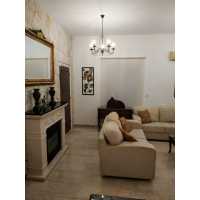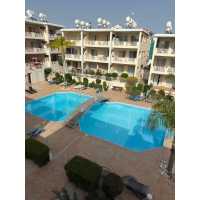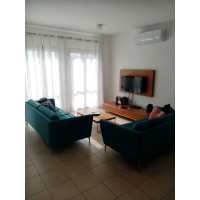Letting Property in Cyprus
Cyprus stands at the crossroads of three continents – Europe, Asia and Africa
and therefore is blessed with a strategic location. Combine this with excellent
weather around the year and you get a great holiday home ensconced within a
glorious heritage.
This is a country small but wealthy and well advanced. In terms of its forests,
mineral deposits, skilled workers, road and telecommunications network and
general development it has lots to offer. Cyprus is indeed a great place to rent
residential properties due to its low cost of living. You can afford a complete
lifestyle that’s not too heavy on your pocket either. For someone looking to
rent on a short term or long term basis, the choice is vast with several villas
and apartments that are available.
In addition to this, the low crime rate is another crowd-puller. Studies show
the crime rate to be only 1/6th of the average of the European countries. That’s
a very good incentive for those wanting to visit the island.
In an independent sovereign republic like Cyprus an individual’s rights are
protected and initiatives are given support and encouragement.
It is therefore not surprising that a good number of Cypriots and foreign
investors look at acquiring immovable property. With a very live and burgeoning
tourist industry this is a wise and profitable investment. There are of course
several important rules and regulations that have to be addressed before you
begin. Some of which are ensuring that the necessary paper work is completed and
government approvals sought. This would include obtaining the title deed,
clearing taxes and duties and acquiring residential permits. This is more
important of course for non-nationals.
Once the legalities are sorted out you would need to keep in mind a few
important points before you decide to let your property.
1) Market Study
You would have to personally research the market and do a feasibility study in
order to pit your product with the available competition. You can either work on
this yourself or hire agencies for the job. The end result should be that you
have a real and clear picture of the market conditions in relation with what you
have to offer.
The entire study will of course focus on the type of property you have. Is it a
stand-alone villa with a private / communal pool? How many bedrooms does it
have? Is there a garden as well?
If you have an apartment you would need to match it with a similar offering
available in the area.
Once you have done the study, you will know what facilities are generally
offered and the corresponding rents that can be charged. The location of your
property is another important factor to consider. You can look at making any
where between £250-£800 per week depending on the peak / non-peak season.
2) Advertising
Once you know what you have and what you want, you have to go about advertising
the same professionally. One of the cost-effective ways is to use the Internet
from the comfort of your home. If you are not involved directly, you can also
register the property with real estate agencies who will charge commissions from
the business they generate for you.
3) Rental Agreements
It goes without saying that when you open the door of your home to strangers you
ought to secure yourself. A proper and well-documented rental agreement drawn up
by a solicitor is an absolute must-have for any landlord. No verbal commitments
or unclear negotiations should be entertained. Arrange to hire a good solicitor
who can draw up the legal document. The agreement should clearly state among
other clauses the property name, lesse and lessor’s name and address, rent,
period of tenancy, deposits paid and medium of payment. Important clauses like
the early termination of contract clause should also be stated.
Your signature along with that of the guest will serve to clearly outline the
rights and responsibilities of both parties. Should there by any damage or
disagreement to the property or on payment schedules etc, the rental agreement
will prevail.
Do not forget to document the permanent contact information of your guests at
the time of signing the agreement. This is vital and helpful in case of any
emergency or payment issues.
4) Payments and receipts
You may receive a refundable security deposit (of at least one month’s rent) and
the first month’s advance rent from the tenant. If the tenant is renting the
property on a weekly basis then alternate payment modes can be worked out.
In case you are offering an unfurnished property to let then the payments can be
amended accordingly.
You can determine the mode of payment – local cheque, bank transfer or cash.
Initial deposits and rent should ideally be in cash to safeguard yourself.
All payments should be accorded receipts for the record. Keys to the property
can then be handed over.
Also to be noted is that all refundable deposits should be handed over,
preferably in cash, to the tenant on vacating after any deductions for damage to
property if applicable. This should be clearly outlined in the agreement to
avoid any confusion at a later date.
5) Safety Precautions
The onus of providing a safe and secure environment for the guests is on the
Landlord. The entire property should be fire-proofed i.e ensure that the fire
escapes/ emergency exits always remain uncluttered and free, fire extinguishers
are kept at prominent locations and within reach, smoke detectors are active and
instructions like ‘What to do in an emergency’ are put up in at least 3-4 main
languages.
Emergency telephone numbers, including your day and night numbers and those like
the hospital, police, fire station etc are to be handed over to the guests. It
would also be a good idea to have a first aid box ready.
As most of your short-term guest would be holidaymakers and tourists this is an
absolute necessity.
6) Maintenance and Cleaning
As a landlord you have to ensure that the utility services like cleaning,
cooking, maintenance are provided to the guests. You may hire professionals for
the job. This would mean entering into contracts with individuals or Companies
for the same. The worst thing to happen to your reputation as a landlord is to
have guests complain about leaking pipes, clogged drains and dirty floors. This
will seriously affect your reputation and business.
Remember more than half of your business will come through references of happy
ex-tenants.
As a landlord you have an option to use the services of a Property Management
company to do the above.
Letting a property in Cyprus is not a very difficult affair. However, it does
call for a good amount of clarity and awareness of the property and property
market.


